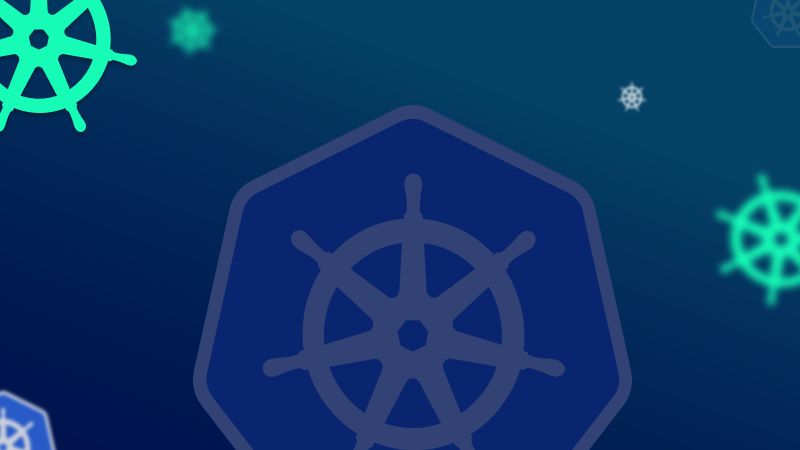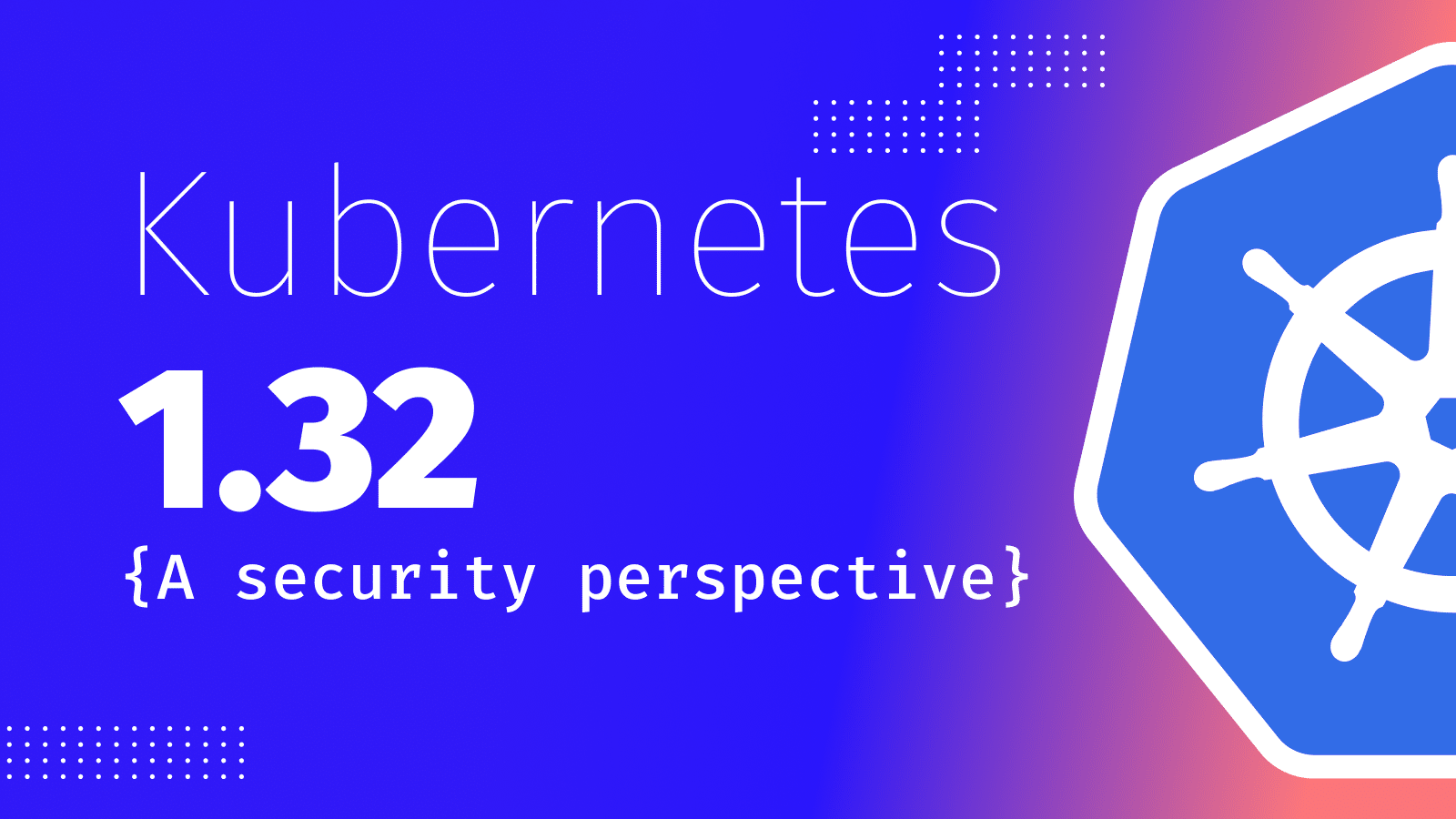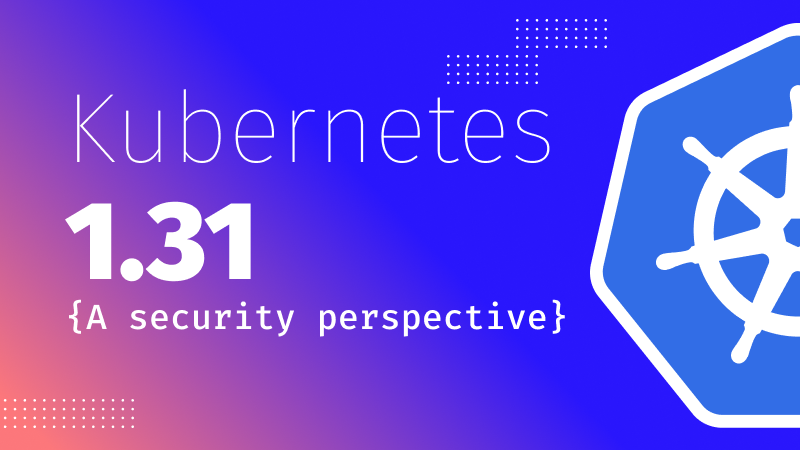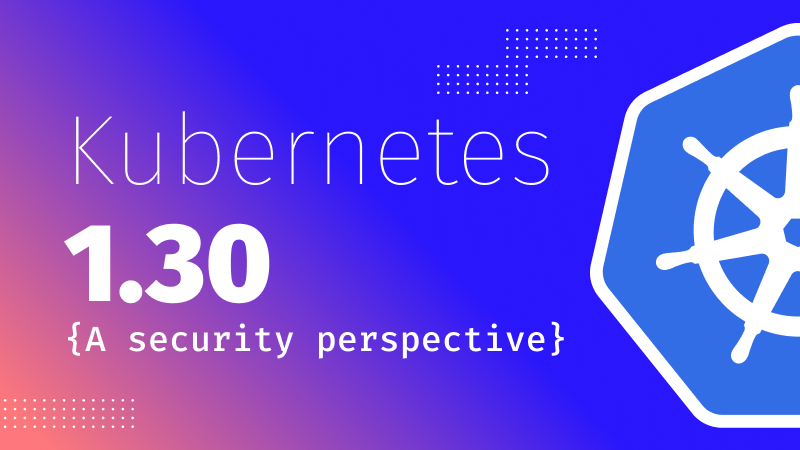Kubernetes 1.32 – A Security Perspective
Kubernetes continues to evolve its security posture with version 1.32, introducing several significant improvements in...

Nov 28, 2022
The Kubernetes community is ready for the last release of 2022—version 1.26. Since its beginning, Kubernetes has been a place of constant change and improvement. The platform evolves and matures with every new API change and bug fix.
In this release, there are 38 tracked enhancements in addition to a large number of bug fixes. In this article, we will focus on some highlighted enhancements, important deprecations, and removals so that you can be confident before upgrading your clusters.
When requests are made to a Kubernetes service, they are randomly distributed to all available endpoints. The new enhancement enriches the API of a service to use node-local and topology-aware routing for internal traffic. The new internalTrafficPolicy field has two options: Cluster (default) and Local. The Cluster option works like before and tries distributing requests to all available endpoints. On the other hand, the Local option only sends requests to node-local endpoints and drops the request if there is no available instance on the same node. The Local option is useful for sending metrics or logs to an agent running as a DaemonSet.
Kubernetes services are assigned a virtual ClusterIP to be reachable inside the cluster. The ClusterIP is either assigned dynamically from a configured Service IP range, or statically set while creating the service resource. There was no possibility of knowing whether another service in the cluster had already used the static ClusterIP before this new stable enhancement. With this change, the IP range is divided into two; this prevents conflicts between services implementing dynamic IP allocation and static IP assignment. The flag --service-cluster-ip-range, with CIDR notation, is part of the Kubernetes API server configuration and is ready to use with the 1.26 release.
Kubernetes services with the LoadBalancer type have only supported a single L4 protocol to date. With this enhancement going to stable in v1.26, it is possible to define a mix of protocols in the same service definition. For instance, you can expose a DNS server with a single load balancer IP for both TCP and UDP requests, such as the following:
apiVersion: v1
kind: Service
metadata:
name: mixed-dns-server
spec:
type: LoadBalancer
ports:
- name: dns-udp
port: 53
protocol: UDP
- name: dns-tcp
port: 53
protocol: TCP
selector:
app: dns-server
The kubelet agent has a built-in credential provider mechanism to retrieve credentials for container image registries. It natively supports Azure, Google Cloud, and AWS container image registries for dynamically retrieving their credentials. The new stable enhancement in v1.26 offers a replacement for the in-tree implementations, and creates an API for extensible plugins in the future.

Every Kubernetes release produces a set of artifacts such as binaries, container images, documentation, and metadata. Since the 1.24 release, the artifacts have been signed as an alpha feature. In the 1.26 release, artifact signing graduates to beta to increase software supply chain security for the Kubernetes release process and mitigate man-in-the-middle attacks.
Kubernetes is a battle-tested platform that makes itself resistant to disaster in the data center. Graceful node shutdown is already part of kubelet, to detect and move workloads afterward. However, when the shutdown is not detected by the kubelet, the pods of a StatefulSet are stuck as Terminating and not transferred to a healthy node. This happens due to a conflict in the Kubernetes machinery: The kubelet on the down node will not delete its pods from Kubernetes API, and the StatefulSet controller will not create new pods with the same name. With this enhancement, moving to beta, the pods will be forcefully deleted with their volume attachments, and new pods will be created on the healthy nodes.
BoundServiceAccountTokenVolume has been GA since version 1.22: Service account tokens for pods are obtained via the TokenRequest API and stored as a projected volume. The new enhancement, in beta, eliminates the need to auto-generate secret-based service account tokens. In addition, Kubernetes will warn about using auto-created secret-based service account tokens, and purge the unused ones.
Privileged containers are the ones that have similar access and capabilities to the host processes running on the servers. In Linux environments, they are used heavily in Kubernetes for storage, networking, and management. In this release, support for privileged containers for the Windows environment graduates to stable. Management of processes is heavily different from the operating system standpoint in Linux and Windows. Therefore, privileged containers will also work differently in two environments, but they will ensure the same level of security and operational experience.
In addition, there is a new alpha-level enhancement in this release to support host networking for Windows pods. Currently, Windows has all the functionality to make containers use the networking namespace of the nodes. The new alpha enhancement enables this functionality from the Kubernetes side, increasing the parity between Linux and Windows containers.
Kubernetes has no resources to identify and manage users as part of its API. Instead, it uses authenticators to get user attributes from tokens, certificates, OIDC providers, or webhooks. The new alpha feature adds a new API endpoint to see what attributes the current users have. The new API is under authentication.k8s.io with the name SelfSubjectReview, and there is a new corresponding command as well: kubectl auth who-am-i. The new feature will reduce the obscurity of complex authentication and help users debug the authentication stack.
Currently, pods are considered ready for scheduling as soon as they are created. However, not every pod requires a node, resource allocation, and the start of all its containers immediately after its creation. The new alpha enhancement adds an API to mark pods with their scheduling status: paused and ready. Pods with the .spec.schedulingGates field will be parked in the scheduler and only be assigned to nodes when they are ready to be scheduled.
Kubernetes has supported OpenAPI v3 as a beta since version 1.24, providing users with a richer representation of the fields in the Kubernetes API. With the new alpha enhancement, the kubectl explain command will use the rich type information specified by OpenAPI v3 instead of OpenAPI v2.
As part of the Kubernetes API lifecycle, there are some deprecations and removals in the upcoming release. It is strongly suggested to check whether you are using the following APIs and flags before there are breaking changes.
flowcontrol.apiserver.k8s.io/v1beta1 API group for FlowSchema and PriorityLevelConfiguration requires a migration to the v1beta2 API version.autoscaling/v2beta2 API version for HorizontalPodAutoscaler requires a migration to the autoscaling/v2 API version.cinder volume type—requires a migration to use the CSI driver for OpenStack. kubectl run command are marked as deprecated in the 1.26 release, such as --grace-period, --timeout, and --wait.Thanks to these enhancements and API changes, Kubernetes is more secure, scalable, and flexible with the 1.26 release. You can check the Kubernetes release notes to learn more about deprecation, removals, and the latest changes.
On behalf of the Kubescape contributors, thank you to everyone who participated in this Kubernetes release, and congratulations!

Kubernetes continues to evolve its security posture with version 1.32, introducing several significant improvements in...

Kubernetes v1.31 brings about some noteworthy improvements to the popular container orchestration platform that improve...

Kubernetes 1.30 marks a significant milestone in the evolution of the widely used orchestration platform,...